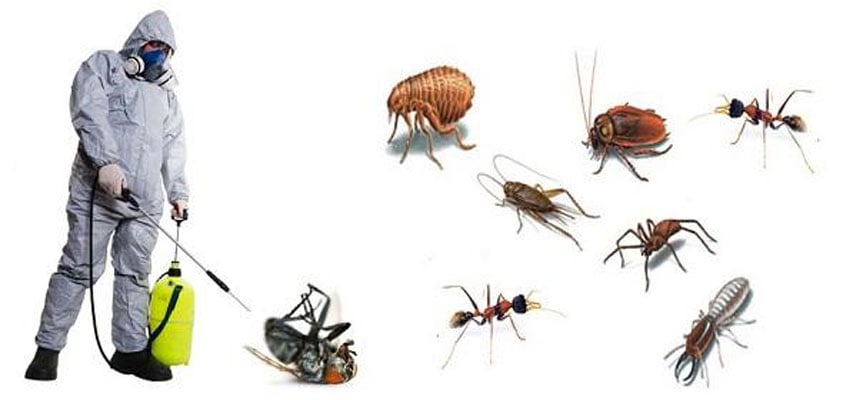 Frequently Asked Question
Frequently Asked Question
 Completely
Completely
Australian Run
 Mention this Ad & Get
Mention this Ad & Get
10% discount off any job
 Can Termites Come Back After Treatment?
Can Termites Come Back After Treatment?
Yes, termites can come back after treatment if the treatment was not thorough or if the underlying conditions that attracted the termites in the first place have not been addressed. Termites are persistent pests and can find their way back into a structure if there are any remaining entry points or conducive conditions for their survival.
To effectively prevent termites from returning after treatment, it is important to take the following steps:
- Thorough treatment: Ensure that the initial treatment is comprehensive and targets all affected areas. This may involve applying termiticides to the soil around the structure, treating infested wood, and using baits or other termite control methods as recommended by professionals.
- Regular inspections: Schedule regular inspections by pest control experts to monitor for any signs of termite activity. Early detection is key to preventing a full-blown infestation.
- Address moisture issues: Termites are attracted to moisture, so it’s essential to fix any water leaks, improve drainage, and ensure proper ventilation in crawl spaces and basements.
- Maintain a termite barrier: Consider installing physical barriers, such as metal screens or sand barriers, around the foundation of your home to deter termites from entering.
- Eliminate wood-to-soil contact: Avoid direct contact between wooden structures and soil, as termites can easily access the wood from the ground. Use concrete or metal supports and maintain a gap between the ground and wooden structures.
- Remove wood debris: Clear away any decaying wood, stumps, or wood debris from around the property, as these can attract termites.
- Regular maintenance: Stay vigilant and perform routine maintenance on your property. This includes inspecting and repairing any cracks in the foundation or walls, ensuring proper sealing around windows and doors, and promptly addressing any signs of termite activity.

By combining effective treatment, preventive measures, and ongoing maintenance, you can minimize the risk of termites returning after treatment. It is advisable to consult with a professional pest control service for a thorough assessment and appropriate treatment options tailored to your specific situation.
Termites are highly resilient insects that live in large colonies, often numbering in the thousands or even millions. Their primary source of food is wood and other cellulose-based materials, making them a significant threat to structures and wooden belongings. Due to their small size and ability to access hidden areas, termites can be challenging to detect and eliminate completely.
When a termite infestation is identified, professional pest control companies employ various treatment methods to eradicate the termites. These treatments may involve applying liquid termiticides to the soil surrounding the structure, injecting termiticides into infested wood, or using termite baits that are taken back to the colony and spread among the termites. However, even with effective treatment, there is always a possibility of termites returning.
Several factors contribute to termites potentially coming back after treatment:
- Incomplete treatment: If the initial treatment is not thorough or fails to target all areas of termite activity, some termites may survive and rebuild their colonies. It is crucial to hire experienced professionals who have a deep understanding of termite behaviour and can administer comprehensive treatments.
- Untreated neighbouring structures: If neighbouring structures, such as adjacent buildings or houses, have termite infestations that go untreated, termites can easily migrate back to your property. Cooperative efforts within the community may be necessary to control termite populations effectively.
- Environmental conditions: Termites thrive in environments with favourable conditions, including moisture, warmth, and access to food sources. If the underlying conditions that initially attracted the termites, such as moisture problems or wood-to-soil contact, are not addressed, it can create an environment that is conducive to termite reinfestation.
- New termite colonies: Termites are capable of establishing new colonies, even after treatment. If there are other termite colonies nearby or if new reproductive termites find their way into your property, they can start a fresh infestation.
To mitigate the risk of termites returning after treatment, it is essential to follow the recommendations of pest control Sydney professionals, address any underlying issues that attract termites, and maintain regular inspections. Ongoing vigilance and preventive measures will help in keeping termite infestations at bay.
If you suspect termite activity or have concerns about a previous infestation, it is advisable to consult with a professional pest control company. They can conduct a thorough assessment, recommend appropriate treatments, and provide guidance on long-term termite prevention strategies tailored to your specific circumstances.
Residential & Domestic
Professional services with affordable Prices
Our fully licensed and experienced technicians will provide you and your family members with a pest control treatment catered for you and your home.
Commercial Pest Control
100% environmentally safe and friendly
All our chemical treatments are approved under Australian Standards so you can be confident of a safe and quality outcome.





